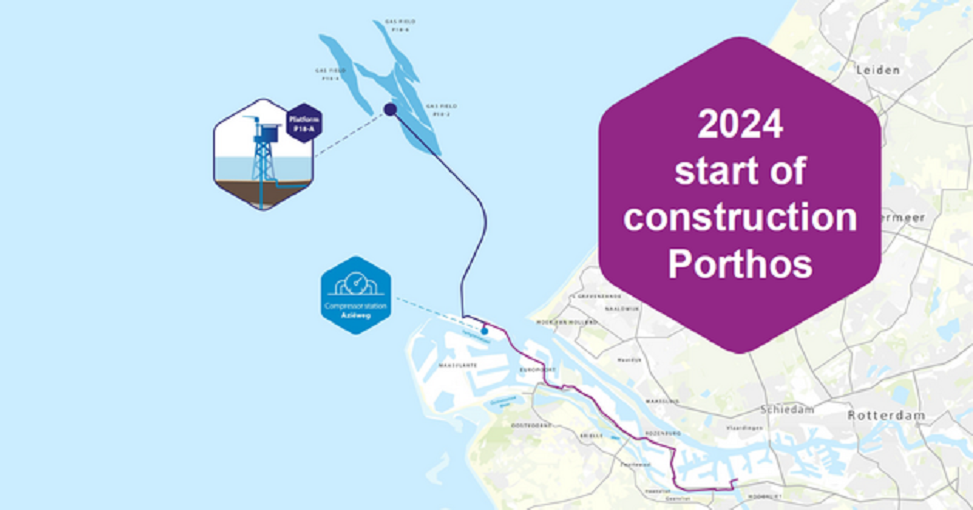Porthos has taken a final investment decision to develop the first major CO2 transport and storage system in the Netherlands. In 2024 construction will begin in Rotterdam, with the Porthos system expected to be operational by 2026. The Porthos infrastructure requires an investment of €1.3 billion. With the final investment decision reached, Porthos will now award contracts required to realise the project.

Porthos is a joint venture of EBN, Gasunie, and the Port of Rotterdam Authority. Porthos will provide transport and storage services to several companies in the port of Rotterdam, including Air Liquide, Air Products, ExxonMobil, and Shell. These companies will invest in their own capture installations to supply CO2to Porthos. Porthos will transport the CO2 through the port of Rotterdam to depleted gas fields in the North Sea, approximately 20 km off the coast, where it will be permanently stored at a depth of 3 to 4 km under the seabed. Porthos plans to store about 2.5 Mton per year for 15 years, totalling around 37 Mton. With that, Porthos has contracted its full storage capacity. The onshore transport system under construction allows for future CO2 storage projects.
Hans Meeuwsen, Porthos director: “CO2 storage is crucial if we want to achieve the climate goals in the Netherlands. This investment decision is an important starting point for future developments in CO2 storage in the Netherlands.”
Boudewijn Siemons, interim CEO and COO of Port of Rotterdam Authority: "It is wonderful that Porthos can now start with the construction work in the port. The CO2 storage will reduce emissions from the companies in the port of Rotterdam by 10%. Next to all our other efforts to start working with cleaner fuels, CO2 capture and storage is really necessary if we are to achieve a considerable reduction in CO2. With Porthos, we are taking the first big step."
Carbon Capture and Storage (CCS) is a cost-effective way to keep large amounts of CO2 emissions out of the atmosphere in the short term. It is therefore an important pillar of the Dutch government's climate policy. Thanks to Porthos, the Rotterdam port industry will soon emit about 10% less CO2. At the same time, the industry is working on the transition to processes based on renewable energy and raw materials.
To realise the project, Porthos partners with TAQA Energy, the present operator of the P18 gas fields, and specialised contractors and suppliers such as Denys N.V., Allseas, LMR Drilling GmbH, Mannesmann Grossrohr GmbH, Corinth Pipeworks, Equans, Ensco Offshore, Van der Ven and Bonatti. Together, under Porthos’ direction, they will deliver the required infrastructure.
The European Union recognised Porthos as an important project in meeting climate targets, declaring Porthos a Project of Common Interest and awarded €102 million in subsidy for it.